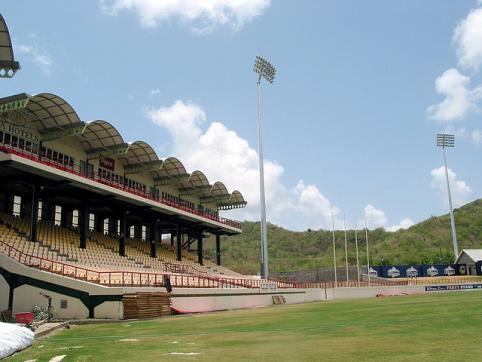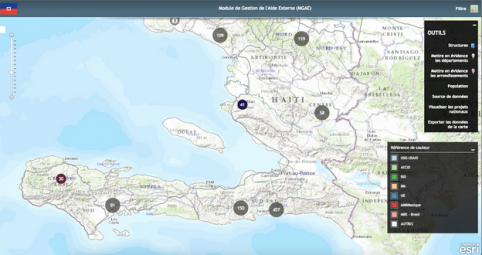
St. Lucia’s Beauséjour Stadium, constructed in 2002 for the 2007 Cricket World Cup.
Over the past several decades, The Caribbean and its countries have experienced a great deal of economic and political change as needs and priorities have shifted. One particular relationship that has significantly changed during this time is how the United States interacts with the region at large; from being subject to the potential of U.S. territorial expansion, to being left independent with the Good Neighbor Policy, to forming regional institutions and receiving development assistance and humanitarian aid.
In recent years, the Caribbean expanded beyond its traditional relationships in the development world and started to form ties with non-traditional donors. This year, Indiaoffered Guyana a US$50 million line of credit to construct a road and purchase a ferry. In the aftermath of the Haitian earthquake, Brazil committed US$2 million in humanitarian aid. Venezuela established an energy alliance with Caribbean states to supply oil on highly preferential terms.
Perhaps the most clearly present and potentially impactful non-traditional donor in the area in recent years has been China. Chinese development assistance in the Caribbean has funded the construction of such public works as hospitals, schools, roads, stadiums, and more. China’s presence as a reliable and robust source of aid comes with the status of partner, stakeholder, and influence in the region. In signing a 2013 agreement, Barbadian Minister of Foreign Affairs and Foreign Trade Maxine McClean stated that China is an “invaluable partner for Barbados.”
In the newest episode of “Deeper than Data,” we interviewed former chief of the U.S. military liaison office to the Lesser Antilles Kofi Aboagye. He revealed that during his time living and working in Barbados, aid donors and recipients did not report data on financial flows. Policymakers, CSOs, and citizens were “operating in the dark.” Going beyond The Caribbean, donors outside of the Development Assistance Committee (DAC) are not required to report aid commitments to the Organization for Economic Co-operation and Development (OECD), and only 33% of official development assistance (ODA) is published to the International Aid Transparency Initiative (IATI) registry.
There are ways to synthesize data on aid flows using available resources. AidData’s Tracking Under-reported Financial Flows (TUFF) methodology remotely collects and synthesizes data from media reports, government documents and databases, Chinese embassy websites, NGO reports, and scholarly articles. In addition, AidData has worked in conjunction with its institutional partner Development Gateway to provide recipient governments a means to monitor. The Aid Management Platform (AMP) includes software applications, technical, institutional and policy support, and an open portal to view geocoded aid data. According to Dina Abdel-Fattah of Development Gateway, the AMP has been used by 25 countries around the world.

Haiti’s AMP map shows the locations of aid projects throughout the country.
The landscape of development finance in the region is far more diverse today, than it was 50 years ago. This change has brought with it many benefits, but has not been without challenges as well. In order to promote sustainable development, the U.S. and other developed states need to recognize the importance of effective management, tracking and coordination of the billions of dollars flowing into the region. The Aid Management Platform and similar enterprises are a reflection of the international community rising to meet that challenge. Development partners and governments in the region need to recognize the value in cooperation and transparency as the full potential for growth and development in the Caribbean cannot be realized until all actors begin to work together, and respect one another.
